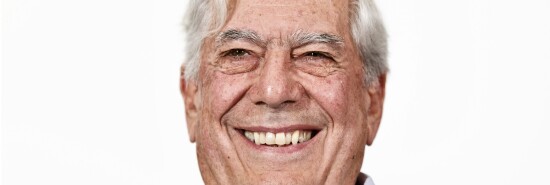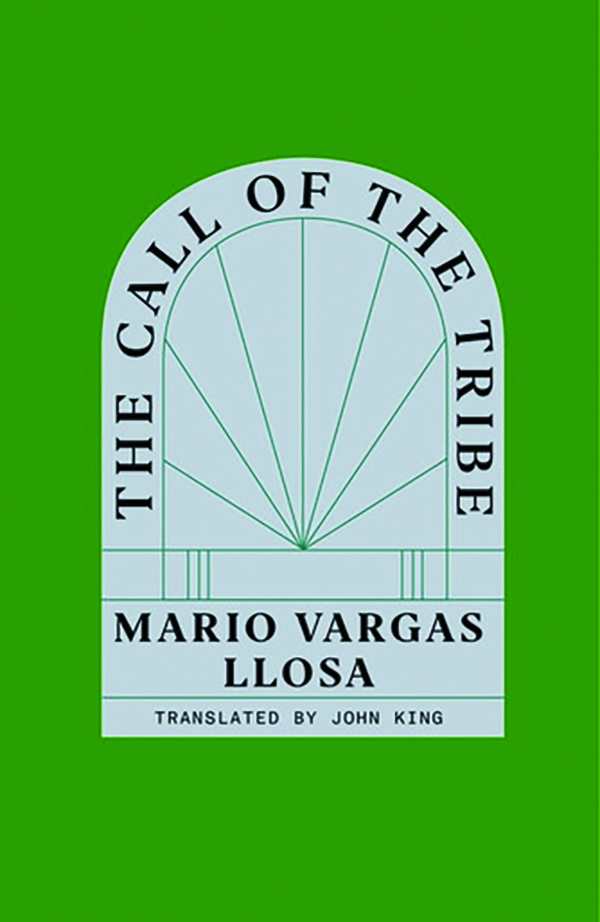
Mario Vargas Llosa rises above
Gustav Jönsson
Why is it that oppositional prose, Left or Right, is so much better than what’s written by bien pensant liberals? Perhaps it is the salutary effect of not having recourse to received opinion. Liberals pride themselves on giving voice to “common sense.” But that style, in effect, risks them coming to believe that everything they say is obvious. They write as if no reasonable person could possibly think otherwise. The result is complacency: Principles that should be scrutinized get taken for granted. The trite is stated as though it were bravely original. Even the very best liberal writers can’t seem to cull their platitudes. Thus, even Mario Vargas Llosa, in his new essay collection The Call of the Tribe, litters his prose with commonplaces: “Equality before the law and equality of opportunities do not mean equality of income, something that no liberal would propose.” Well, I never…

Inspired by Edmund Wilson’s To the Finland Station, Vargas Llosa profiles seven writers who have shaped his liberal convictions: Adam Smith, Jose Ortega y Gasset, Friedrich Hayek, Karl Popper, Raymond Aron, Isaiah Berlin, and Jean-Francois Revel. It is a respectable if conventional lineup: Every Cold War liberal has some of them on their bookshelf. Leaving out Smith, these writers opposed both fascism and communism, with perhaps special loathing of Stalinist fellow travelers. (Ortega y Gasset is an inglorious partial exception because he never voiced his hostility toward Franco.) Together, Vargas Llosa writes, they have taught us to resist “the call of the tribe” — the siren song of illiberalism.
Of course, Vargas Llosa’s shift from radical socialist to Reagan-Thatcher liberal wasn’t entirely the result of intellectual pursuits. His break with the “cause” followed several events in the late ‘60s, such as the Soviet invasion of Czechoslovakia. It became conclusive in 1971, when he rallied intellectuals to sign a letter of protest over the imprisonment of the poet Heberto Padilla, veteran of the Cuban Revolution, on bogus charges of being a CIA agent. Fidel Castro personally replied, banning Vargas Llosa from Cuba for an “infinite period of time.”
The contempt with which certain radicals treated literature hastened Vargas Llosa’s repudiation of the Left. They either believed that literature had no political role, or they subordinated it to politics. He had, he tells us, spent half his salary on Sartre’s Les Temps Modernes and felt betrayed when Sartre said that writers in Africa should give up literature for revolution. When he visited the Soviet Union in 1968, he inquired what class had the most privileges in Soviet society and was told “submissive writers.” He realized that had he lived there, he would have been “rotting in the Gulag.”
For Vargas Llosa, to overcome tribalism is to be a citizen of the world. He is, of course, himself the epitome of that cosmopolitan ideal: He is fluent in several languages and equally at home in Peru as in France, England as in Spain. The tribal call, he writes, is “the irrationality of the primitive human being that nests in the most secret recesses of all civilized people.” It is the call to recreate lost traditional times, when everybody was “still an inseparable part of the collective, subordinate to the all-powerful sorcerer or chief … spoke the same language, worshipped the same gods, and hated outsiders.” Headed by the charismatic leader — the caudillo — the tribe can be communist or religious or nationalist, but whatever its form, it is everything Vargas Llosa’s liberalism is not.
Like the late W.G. Sebald, Vargas Llosa writes so lucidly that he can make a paragraph-length sentence seem no longer than a single line. But his expository style flattens his prose: The Isaiah Berlin chapter, for instance, is a serviceable introduction to Berlin’s life and thought, but it’s little more than a precis of Michael Ignatieff’s rather hagiographic biography. Other than that, Vargas Llosa’s main stylistic vice is his belabored use of elegant variation. Thus, Berlin is variously called “this scholar,” “this thinker,” “the professor from Latvia,” “the great thinker,” and, perhaps most egregiously, “the author of The Hedgehog and the Fox.” Still, it isn’t nearly as bad as it could’ve been; I recently read a Heidegger biography in which Heidegger kept being called things like “the son of Messkirch’s sexton and cooper.”
And yet, like so many liberal essayists, he falls back on received opinion. Both Reagan and Thatcher, we’re told, “contributed in a decisive way to the collapse and disintegration of the U.S.S.R.” He says that as though it were self-evident, but it’s precisely in such moments that he takes leave of his critical faculties. Praising Thatcher, he says that when she faced the miners’ strike, she “showed a courage and conviction that Britain had not seen since the days of Winston Churchill.” Come now.
The highest stage of ideology is the belief that one’s viewpoint isn’t in fact ideological — as economist Joan Robinson wrote, ideology is like breath in that you can’t smell your own. Perhaps liberals are especially susceptible to this folly, for how could “common sense” possibly be ideological? Thus, Vargas Llosa commends liberalism for its broadness: Liberals can be either Left or Right, he notes, so we shouldn’t “think of liberalism as just another ideology.” He then follows this by nakedly ideological statements: that freedom must never be only social, but economic; that the small state is better than the large.
One of Vargas Llosa’s charms is that he doesn’t hesitate to criticize his heroes. Berlin is chided for blacklisting Isaac Deutscher for his Marxist sympathies. (I rather suspect that Berlin, perhaps the prickliest man in Europe, actually did this because he once received a bad book review from Deutscher.) Hayek is criticized for saying that Chileans had more freedom under Pinochet than Allende. Popper wrote badly and preferred Trollope to the “sickly” literature of Kafka, Roth, and Musil. Aron took little notice of the world outside Europe. And how could Reagan like Louis L’Amour?
If I were to reduce Vargas Llosa’s liberalism to two sound maxims, they would read: (1) beware saviors, however seductive; if they can lead you into utopia, they can lead you anywhere; (2) resist irrationalism, but know that reason has its limit too. Yet what made it worth reading, say, Raymond Aron, was that he made these points in the face of fierce opposition. It was widely said by his fellow intellectuals that “it was better to be wrong with Sartre than right with Aron.” That friction sharpened his essays because he could never invoke received opinion. Vargas Llosa faces no such friction.
Gustav Jonsson is a Swedish freelance writer based in the United Kingdom.
